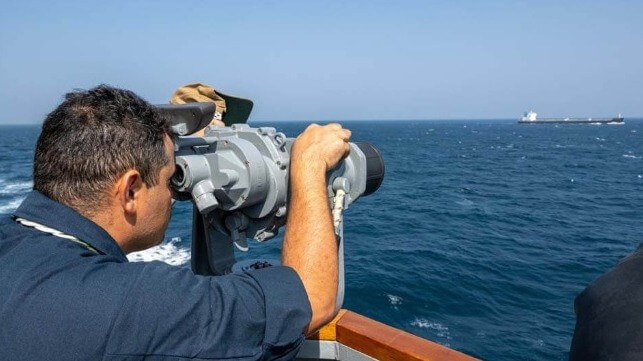SIU: American Seafarers Need Secure Comms for Red Sea's High-Risk Zone

On Tuesday, the head of the largest U.S. unlicensed seafarer union said that U.S.-flag ships are using unsecured radio and phone communications to keep in touch with the U.S. Navy vessels protecting them in the Red Sea.
"We need better communications between the commercial vessels that are . . . . waiting to be escorted and the combat vessels," said David Heindel, president of the Seafarers International Union. "Right now we're using the radio or mobile phones if we're fortunate enough to have the connectivity. Having communications with the [U.S. Navy warships] is vital."
A small task force of U.S. Navy destroyers is on station in the Red Sea to defend shipping against Houthi rebels, who have been launching missiles and drones at passing merchant traffic for months. Heindel - testifying on behalf of America's maritime unions - argued that U.S.-flag vessels should take priority when it comes time to join a convoy, and that they should have access to military-grade comms.
America's maritime unions have previously petitioned Transportation Command for secure communications support in the Red Sea, whether in the form of specialized equipment, embarked naval officers, civilian mariners with the correct security clearance and certification, or other means. TRANSCOM has signaled its willingness to help, he said.

that matters most
Get the latest maritime news delivered to your inbox daily.
He also warned that it may be better in the long run to route U.S.-flag shipments around the Cape of Good Hope whenever possible. While every U.S.-flag vessel to the Red Sea has sailed with a full crew so far, non-essential transits that pass within range of Houthi rockets "may have a detrimental effect on the maritime industry's ability to recruit and retain mariners in the future," he cautioned.
"I am convinced that every mariner sailing in that region . . . would prefer to reroute around Africa than transit the conflicted region, in the absence of a need to deliver an essential cargo to the area in question," he explained.
